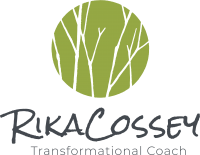I had a severe case of AAAARRRRGGGGHHHHH today. It made me wonder why I keep asking other people’s opinion when I know it’s going to get me down.
In this case, I tried to stay vague with my question. I still got answers though that made me a tiny bit unsure about my whole decision. I won’t talk about the details of my specific case here now. I instead want to use the opportunity to speak more generally about the power of naysayers. You know, people who will mock your ideas and tremble on them before they have even been able to grow into anything meaningful.
So, what to do?
Observe who you are talking to
The most important advice for me has been this: everyone will tell you something with their own history in mind. Whoever you ask, everyone has a set of life experiences. These experiences will shape their reaction to your question. And it’s fair to assume that naysayers will have had a few negative experiences (or at least defined them as such).
I have learned to look closely at the person giving me advice. What has that person potentially experienced that would colour their response to my question? What might influence their reaction towards my idea?
It doesn’t have to be only negative experiences. Positive experiences shape our lives just as much.
It’s normal to incorporate life experiences into our personalities. So, it’s equally reasonable that negative (and positive) experiences will affect any answer to a question.
Analyse the wording of your question
While experiences shape answers, question do as well. Whichever way you phrase a question often determines the shade of the solution. Just take these questions, I asked my family before I started blogging:”Do you think I should write a blog?”versus”I want to write a blog. What do you think?”.
As you can imagine the answers were very different to the two questions.I think it’s more helpful to ask factual questions and to leave the thinking-questions to only close friends. I often find that it hinders me if I get too many recommendations to what I should do when I’m at the beginning of a decision making process. But at the same time, I also know people who are comfortable to share their latest ideas. They share it to gather feedback and to base their decision on this feedback.
In any shape or form, it’s a good idea to look at the wording of your question: is it too open-ended or maybe even too closed? Does the question imply uncertainty, or does it carry your idea across clearly? You can also ask yourself: what do I actually want to hear?

You hear what you want to hear
With the wording in mind, it’s also important to listen to the kind of advice you want to hear. Whenever someone told me that blogging was a dying form of internet communication, I shrugged it off and went to the next person. It wasn’t the kind of advice I wanted to hear, so I didn’t listen to it.
I know it’s tough to filter like that, but in the name of getting encouragement rather than discouragement, it’s vital to start filtering early. Don’t listen to the naysayers! There are always opinions which won’t match your own. And there are always people who will tell you something you don’t want to hear. It’s up to you to take that in or to leave it.
Make up your mind
It’s essential to understand this last piece of advice: you need to make the decision and live with it. It doesn’t matter if you have asked one hundred people about their thoughts on your latest life project. YOU are the one who has to make the last call. If you have 99 naysayers, telling you not to do something and only one person supporting you, you can decide to go with that one person and turn your ideas into reality. The only thing you can’t do is to shift responsibility about your decision onto that one person.
In the end, you have to make the decision. And that is why I not only blog now, but I will also ignore most of the advice I have gotten to my most recent question and move forward with my plans.
This post first appeared on Live Small – Be More.

